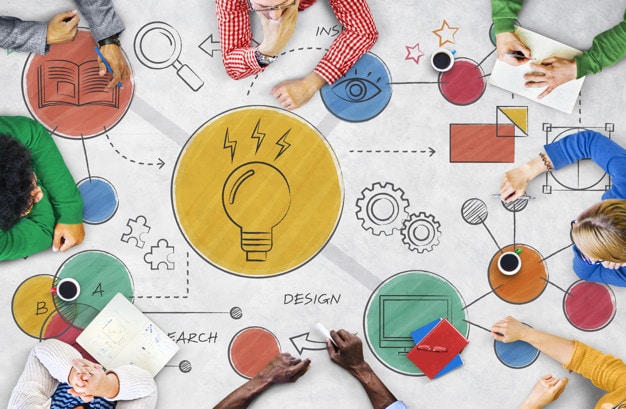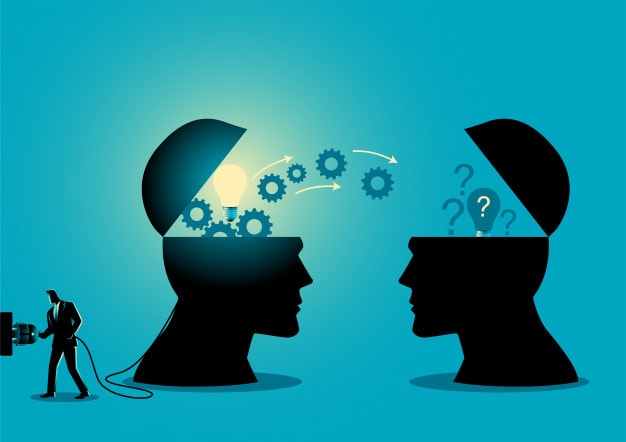
Understanding Organizational Learning: Types, Benefits and Implementation Strategies

Organizational learning is an ongoing process that enhances a company's ability to adapt to external changes, while also improving its internal processes It involves the creation, retention, and transfer of knowledge, and can take various forms, including communities of learning Ultimately, the benefits of organizational learning include improved performance, innovation, and a competitive edge
Organizational learning is a vital process that enables an organization to evolve and adapt to changes in its internal and external environment. This process involves incorporating new knowledge and understanding into the existing knowledge base of the workforce, which then leads to the implementation of effective strategies to improve overall performance.
Understanding organizational learning
Schon and Argyris introduced a significant theory in organizational learning, which suggests that errors are detected and corrected to facilitate learning. Fiol and Lyles define organizational learning as a process of enhancing actions through improved knowledge and understanding. This concept has far-reaching implications for various fields, including business management, philosophy, psychology, and sociology. Organizational learning involves a complex mechanism that promotes change by fostering new behaviors that differ from previous ones.
Types of organizational learning
The three types of organizational learning are as follows
1. Double-loop learning
The process of organizational learning involves reevaluating existing theories and making necessary corrections to improve overall strategies, values, and assumptions. This approach aims to create a more productive and efficient working environment by identifying and addressing areas that require improvement. In Double-loop learning, leaders may choose to overhaul specific departments or processes to prevent future issues or disruptions.
Organizational learning can be categorized into different types, one of which is single-loop learning. This type of learning is focused on correcting errors and involves a feedback loop that modifies a strategy in response to an unexpected and undesired outcome.
During these instances, the organization strives to identify the root cause and adjust their approach accordingly to rectify the error and resume their desired course. The process of detecting and correcting errors does not alter the fundamental nature of the organization's activities.
Deuterolearning focuses on enhancing the learning system by incorporating both behavioral and structural components that emphasize the importance of "learning how to learn." To optimize their learning processes, organizations should consider utilizing all three methods mentioned above.
Communities of learning in organizational learning
The organizations can gain knowledge through its communities of learning which are described below-
1. Individual Learning
In an individual learning community, an employee can enhance their skillset and increase their productivity, ultimately benefiting the organization. However, it is crucial for the organization to encourage the sharing of knowledge between employees to ensure that the knowledge gained is not lost if an employee were to leave the company.
Group learning is a collaborative approach to acquiring new skills, where individuals come together in a team setting to support each other's learning. It involves active participation from all members, who work together to take action, receive feedback, and adapt their approach accordingly.
In group learning, knowledge sharing is not limited to just what is taught in a classroom or training session. It can also come from individual learning experiences that are then shared within the team. Additionally, group learning can occur through identifying and correcting errors as a team. Over time, this allows for better coordination and an increased understanding of each member's role within the group. This sense of connection and interdependence reinforces the idea that the actions of one member affect the entire group.
Organizational learning is a vital component of a learning community where it plays a significant role in the overall learning process of the organization. This involves the acquisition of information and knowledge that is relevant to the organization's operations and using it to improve its strategies to better adapt to changing environments and increase efficiency.
By identifying the underlying causes of issues, the focus is on implementing successful solutions. This approach also emphasizes the importance of individual skill development through enhancements in organizational structure, layout, and technology. The knowledge acquired is then harnessed to drive positive change in procedures and processes, ultimately benefiting the entire organization.
Inter-organizational learning is a prevalent type of learning in the context of a learning community. It is most commonly observed in large businesses and franchises that have multiple locations. In this collaborative learning approach, all alliance partners work together to share knowledge and expertise.
The forms of organizational learning
By incorporating new insights into their existing products and processes, companies can improve and stay ahead of the game. Through inter-organizational learning, these companies can learn at a faster pace and utilize their experiences to gain a competitive advantage.
The various forms of organizational learning are as follows-
1. Individual learning
In this form of learning an individual gains knowledge through formal training or experience
2. Continuous Learning
In this type of learning, the organization provides development opportunities to its employees through various programs
3. Learning through empowerment
In this type of learning, the teams can gather more information because of their increased responsibilities
4. Embedded Systems Learning
In addition to learning from the organizational systems, individuals can also learn from their leaders. Effective leaders can provide guidance, support, and mentorship to help employees develop new skills and knowledge. This type of learning can occur through formal training and development programs, as well as through informal coaching and feedback from leaders. By learning from their leaders, employees can gain valuable insights into the organization's culture, values, and goals, as well as develop their own professional competencies.
In this type of learning, employees learn directly and indirectly from the action and behavior of their leaders as they are their role models
6. Dialogue and Inquiry Learning
In this type of learning, it is possible to gain knowledge through conversations and dialogues.
7. Team Learning
In this type of learning the team has to undergo formal as well as informal learning to gain knowledge
Key processes that drive organizational learning
The Key processes that drive organizational learning are as follows-
1. Knowledge creation
To promote organizational learning, managers must focus on knowledge creation. This involves constantly seeking out new information about customers, clients, vendors, businesses, products, services, and the environment. By staying up-to-date on the latest industry trends and innovations, managers can ensure their organization remains competitive and adaptable.
Through networking, market analysis, and surveys, organizations can gain valuable insights into their market and competitors, which can aid in the creation of knowledge. Additionally, direct exposure to the subject matter through various tasks and processes within the organization can further reinforce both tacit and explicit knowledge during the knowledge creation process.
2. Knowledge retention
Once knowledge has been created within an organization, the next crucial step is to ensure that it is preserved for future use. This requires implementing an efficient system for storing and recording the information, or at the very least, making sure it is retained within the organization.
This is done so that employees down the lane can gain access to the required information easily and quickly.
3. Knowledge transfer
Knowledge transfer is the crucial third step in driving organizational learning. It involves transferring knowledge or information from individuals to the broader organizational community through a variety of methods, ranging from simple to complex. However, regardless of the method, the transfer of knowledge is essential and should be prioritized. Metrics such as learning curves are utilized to evaluate the success of this step, and knowledge is often transferred both explicitly and tacitly through direct experience. To facilitate this transfer, organizations can implement specific processes and procedures.
Benefits of organizational learning
Effective knowledge management enables managers to utilize valuable insights gained from experience and data to drive meaningful change throughout the organization. This process of creating, retaining, and transferring knowledge is crucial for ensuring the success and well-being of the organization as a whole.
The benefits of organizational learning are as follows-
Organizational learning boosts employee satisfaction.
It helps in succession planning by developing leaders at all the levels in the organization
It increases the level of efficiency and productivity
organizational learning minimizes the rate of employee turnover in the organization
Organizational learning helps to generate profits
It boosts adaptability within the organization
Organizational learning promotes efficiency gains
It helps to create a mindset that promotes continuous improvement
It encourages shared ownership and shared accountability in the organization
Organizational learning creates a culture that encourages knowledge sharing and adaptive capacity
It improves and enhances the ability of individuals and teams to embrace change successfully
Organizational learning is crucial for businesses to stay relevant and thrive amidst constant change. By focusing on creating, retaining, evolving, and transferring knowledge, companies can become more competitive and innovative in their industries.
It is a fact that an organization that promotes organizational learning can adapt easily to a changing environment and stay relevant.











